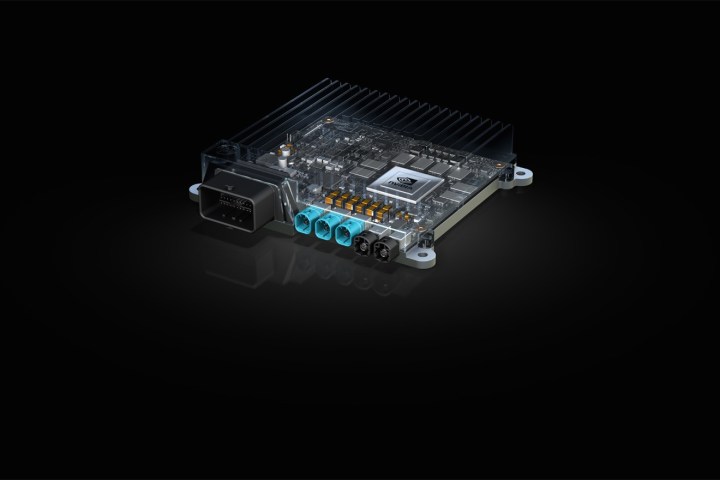
Bosch claims to be the world’s largest automotive supplier, and wants to be a bigger player in the autonomous-driving game. Nvidia already supplies the computing hardware to some companies for their prototype self-driving cars. Together, Bosch and Nvidia hope to develop a system that, Nvidia claims, will have some degree of artificial intelligence.
A new self-driving car computer will be developed by Bosch, but will be based on Nvidia’s Drive PX system, including the Xavier “super chip,” which Nvidia claims will enable AI capabilities. Nvidia says the Xavier chip is very powerful, which is necessary to handle the vast amount of computations a self-driving car needs to perform just to maintain awareness of its surroundings and keep moving.
“Using [the] Drive PX AI car computer, Bosch will build automotive-grade systems for the mass production of autonomous cars,” Nvidia CEO Jen-Hsun Huang said following the announcement of the partnership at the Bosch Connected World conference in Berlin.
AI is cropping up more in discussions of autonomous cars because it could solve a major problem with the technology. Self-driving cars will likely need to make decisions on the fly, rather than responding to preprogrammed instructions, as today’s prototypes do for the most part. That’s because there may simply be too many variables for programmers to anticipate. However, it is still unclear whether companies can deliver a computer that’s as adaptable as a human driver in the real world.
Previous versions of Nvidia’s Drive PX system developed independently of Bosch are getting some real-world tests. Volvo uses the system in its prototype self-driving cars, and Nvidia is the hardware supplier for Roborace’s autonomous race cars. Roborace unveiled a slick-looking race-car design last month, but so far it has only conducted small-scale tests with prototypes.
Editors' Recommendations
- Tesla Autopilot vs. full self-driving: What’s the difference?
- Cruise autonomous vehicle drives over woman just after she was hit by another car
- Volkswagen is launching its own self-driving car testing program in the U.S.
- Is Tesla Full Self-Driving worth it?
- Apple’s rumored car could cost the same as a Tesla Model S



